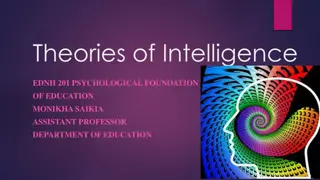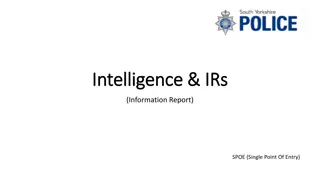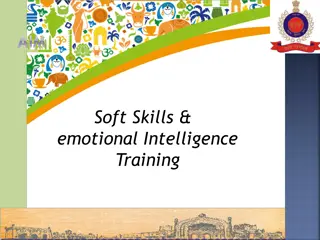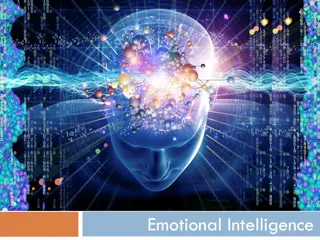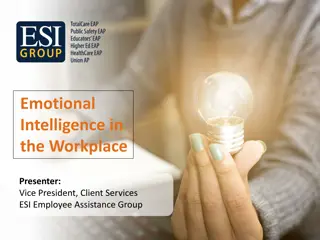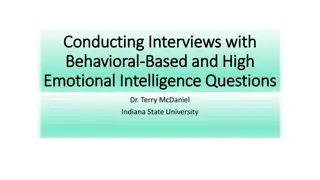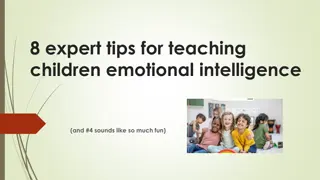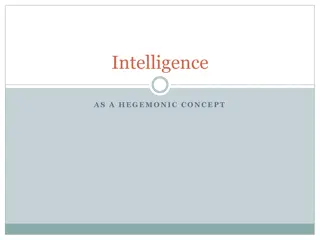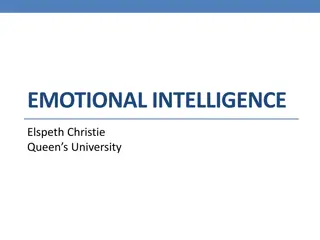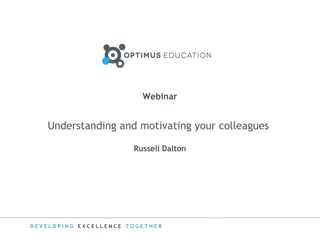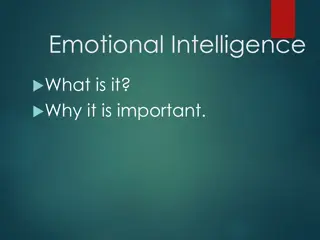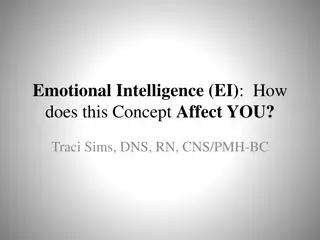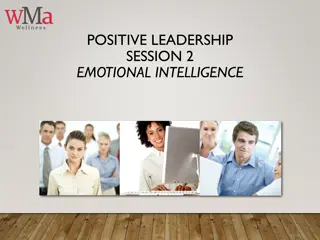
Understanding Emotional Intelligence: Key Abilities and Importance
Discover the core abilities of Emotional Intelligence as identified by Daniel Goleman in 1996, including recognizing, using, understanding, and managing emotions. Explore how Emotional Intelligence impacts success in various fields, such as leadership and client relationships.
Download Presentation

Please find below an Image/Link to download the presentation.
The content on the website is provided AS IS for your information and personal use only. It may not be sold, licensed, or shared on other websites without obtaining consent from the author. If you encounter any issues during the download, it is possible that the publisher has removed the file from their server.
You are allowed to download the files provided on this website for personal or commercial use, subject to the condition that they are used lawfully. All files are the property of their respective owners.
The content on the website is provided AS IS for your information and personal use only. It may not be sold, licensed, or shared on other websites without obtaining consent from the author.
E N D
Presentation Transcript
Introduction In 1996, Daniel Goleman claimed that IQ was too narrow and that our emotions played a far greater part in individual success or ability. He stated self- awareness, empathy and social-deftness were the attributes that made people excel. He referred to these abilities as Emotional Intelligence Emotional Intelligence testing focuses on how emotions can be used intelligently and looks at four core abilities
1. Recognising Emotions This is the ability to recognise how you and those around you are feeling. It involves paying attention to and accurately decoding emotional signals in facial expressions, tone of voice and body language. If a funeral director/arranger is uncomfortable with a person s expression of emotion and looks away they may not accurately perceive that other person s emotional state.
2.Using Emotions This is the ability to know which emotions can assist a situation or task and being able to generate these helpful moods. Key leadership tasks are building rapport and trust, creating a vision, thinking flexibly and strategically and making effective decisions. Being able to work out how others are feeling and empathise, you can help individuals feel connected and they become more focused on achieving a common goal
3. Understanding Emotions This involves knowing what a person is feeling, the cause of these feelings and the ability to predict how feelings will progress and change. It involves putting this knowledge into words. Understanding emotions allows us to work out what drives and inspires people and what frustrates and alienates them
4. Managing Emotions We need to manage our and others emotions by being open to what we and others are feeling. This skill is beneficial to the funeral arranger/director who spends a lot of time with families who have suffered a traumatic loss and need support and guidance. Dealing with stress, making decisions, and having the relationship you desire with your clients all require you to have this skill.

